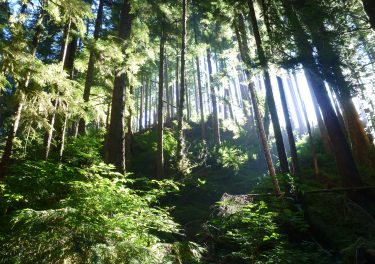
Before humans intervened in forest ecosystems, disturbances such as fire, wind storms and diseases wracked segments of the landscape, killing off swathes of trees and providing spaces for regrowth. Today, forest conditions are largely constrained by logging and conservation strategies, but scientists are recognizing the ecological and community benefits of letting a forest behave in more natural patterns.
Scientists at the University of Washington and the state Department of Natural Resources intend to test a management approach that mimics natural disturbance patterns and processes across a portion of the Olympic Peninsula, an area known for having the most rainfall in the lower 48 states, high tree-growth rates and old-growth forests, part of which remain today.
Their experiment will compare different types, intensities and patterns of disturbance and regrowth within 16 watersheds on the western Olympic Peninsula. It will also look at how forest management can sustain rural communities that depend on the forest. Considering community well-being in resource management is growing widely, and the experiment will try to achieve a balance of providing for both people and the ecosystem they are a part of.
“This is so central to the entire management of the Olympic Peninsula right now,” said Bernard Bormann, director of the UW’s Olympic Natural Resources Center near Forks, Washington, and one of the lead authors of the study proposal.
Read more at UW Today »
